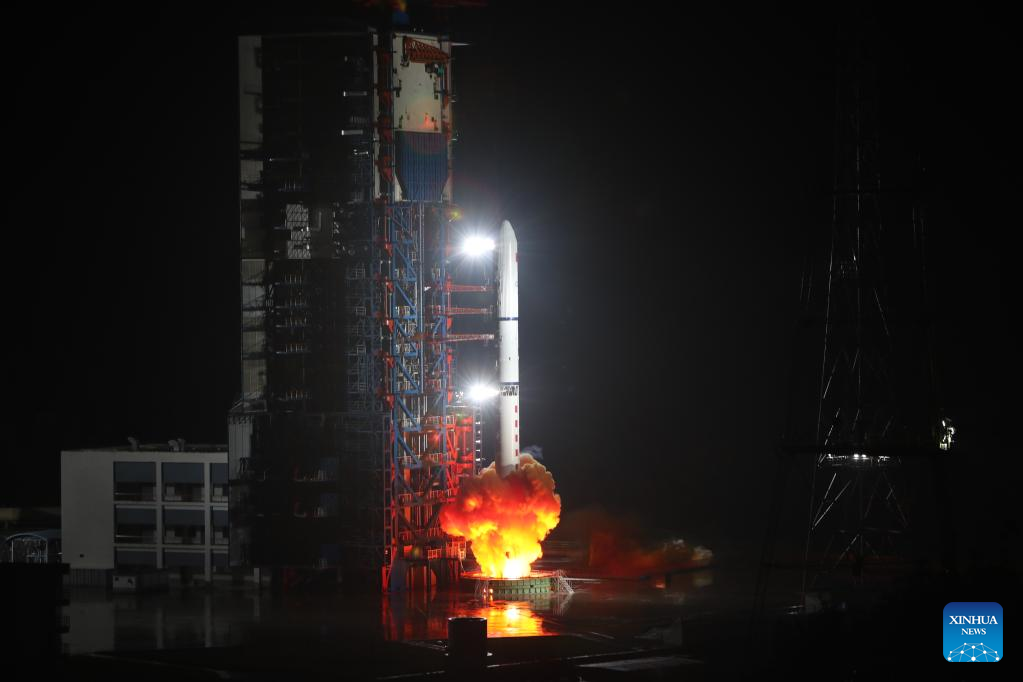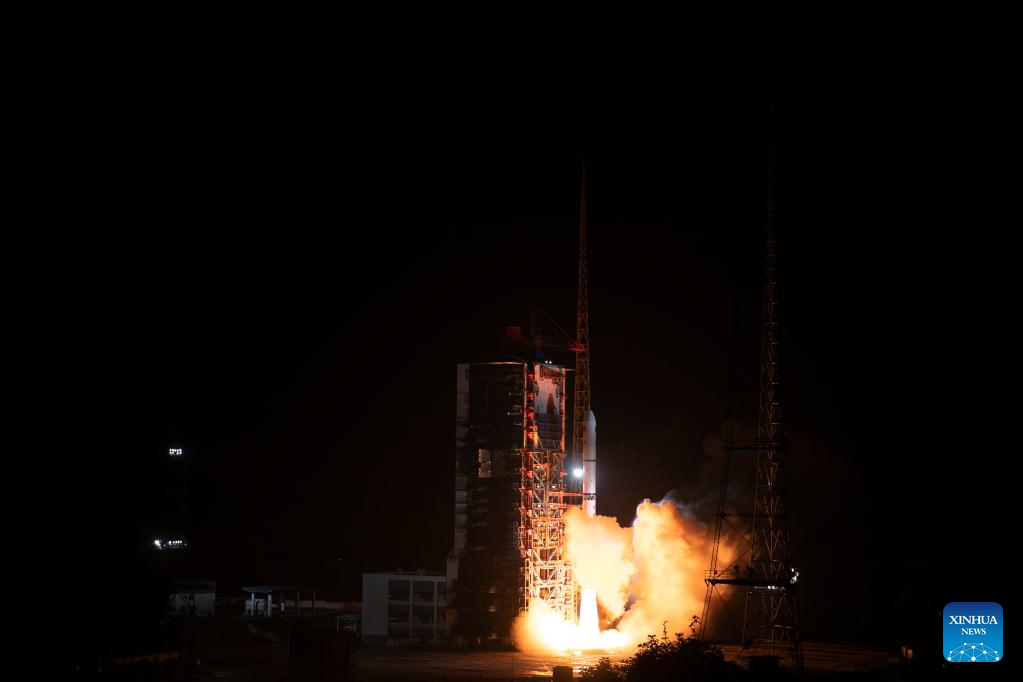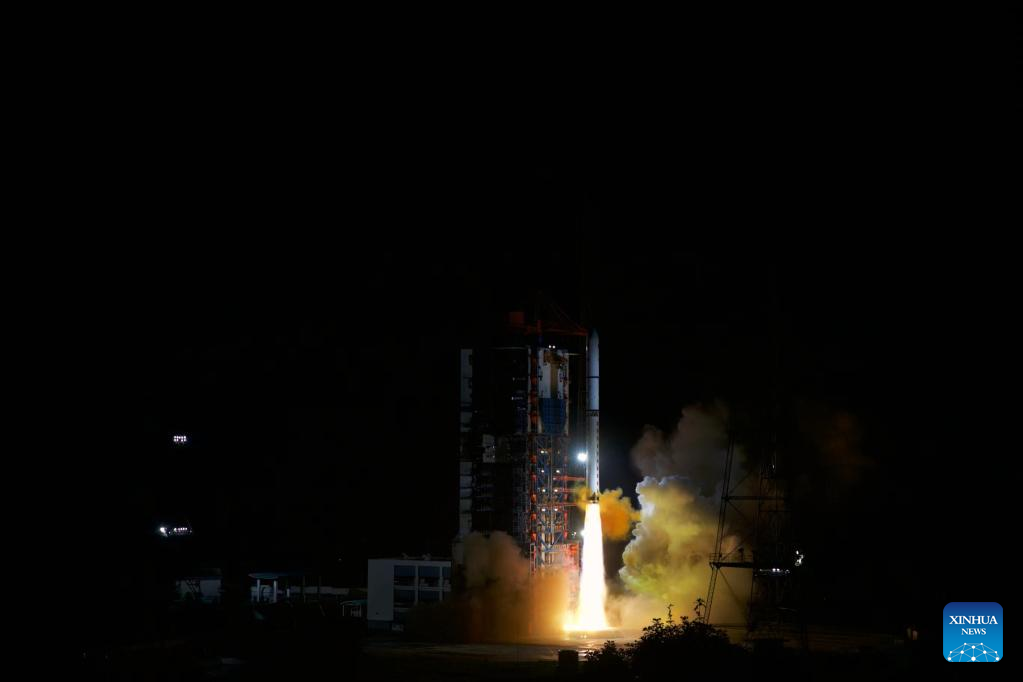
A Long March-2D carrier rocket carrying a remote sensing satellite group blasts off from the Xichang Satellite Launch Center in southwest China's Sichuan Province, Aug. 20, 2022. The satellites were lifted as the fourth batch of the Yaogan-35 family at 1:37 a.m. (Beijing Time) and entered the preset orbit. They will be mainly used to conduct science experiments, land resource surveys, yield estimation of agricultural products and disaster prevention and reduction. (Photo by Ying Longfei/Xinhua)
XICHANG, Aug. 20 (Xinhua) -- China on Saturday launched a Long March-2D carrier rocket to place a remote sensing satellite group in space.
As the fourth batch of the Yaogan-35 family, the satellites were lifted at 1:37 a.m. (Beijing Time) from the Xichang Satellite Launch Center in the southwestern province of Sichuan and entered the preset orbit.
They will be mainly used to conduct science experiments, land resource surveys, yield estimation of agricultural products and disaster prevention and reduction.
The mission marked the 433rd flight of the Long March carrier rockets. ■

A Long March-2D carrier rocket carrying a remote sensing satellite group blasts off from the Xichang Satellite Launch Center in southwest China's Sichuan Province, Aug. 20, 2022. The satellites were lifted as the fourth batch of the Yaogan-35 family at 1:37 a.m. (Beijing Time) and entered the preset orbit. They will be mainly used to conduct science experiments, land resource surveys, yield estimation of agricultural products and disaster prevention and reduction. (Photo by Ying Longfei/Xinhua)

A Long March-2D carrier rocket carrying a remote sensing satellite group blasts off from the Xichang Satellite Launch Center in southwest China's Sichuan Province, Aug. 20, 2022. The satellites were lifted as the fourth batch of the Yaogan-35 family at 1:37 a.m. (Beijing Time) and entered the preset orbit. They will be mainly used to conduct science experiments, land resource surveys, yield estimation of agricultural products and disaster prevention and reduction. (Photo by Ying Longfei/Xinhua)



